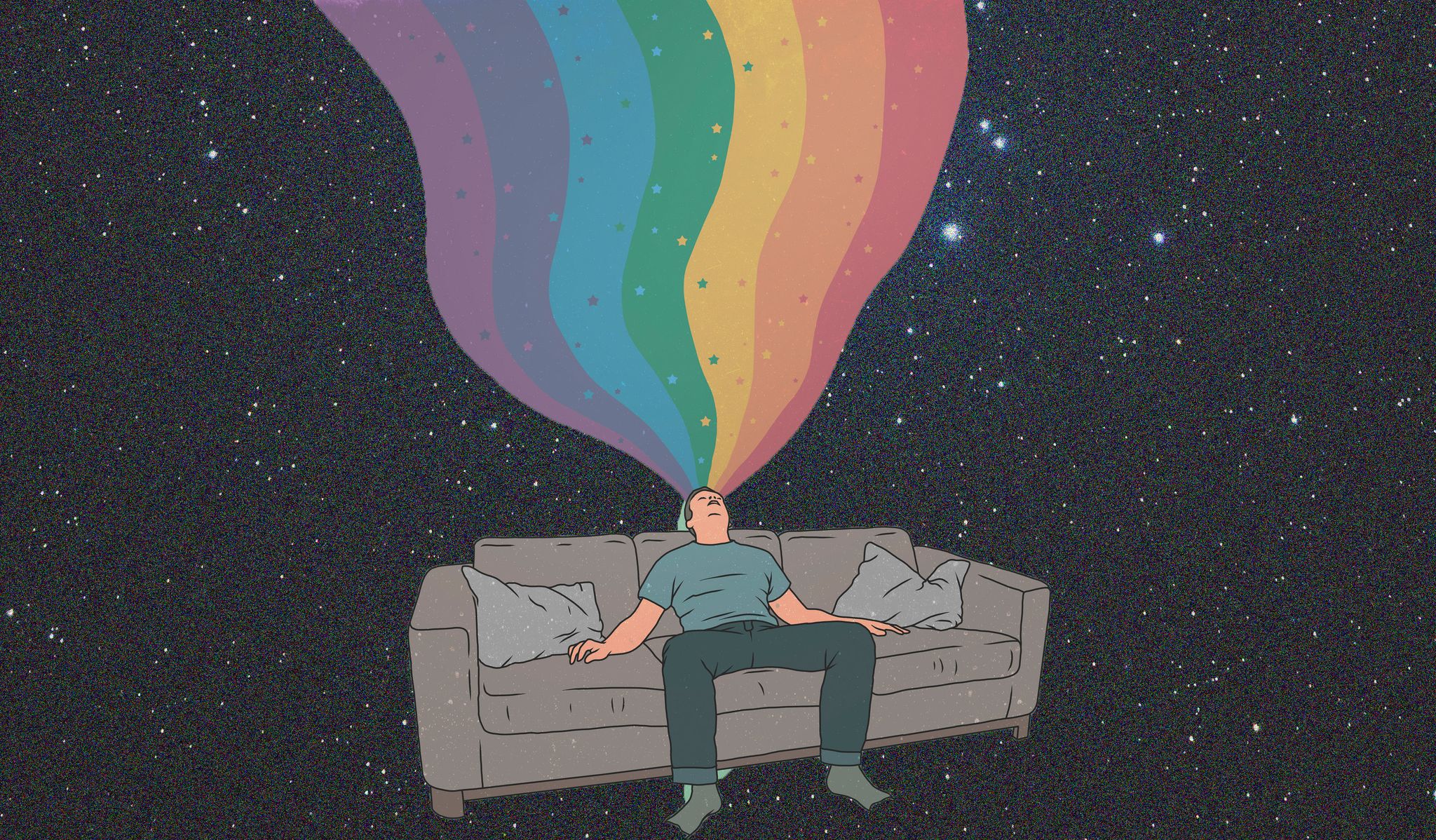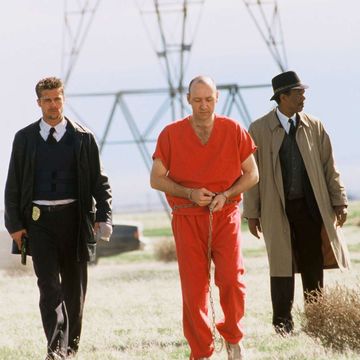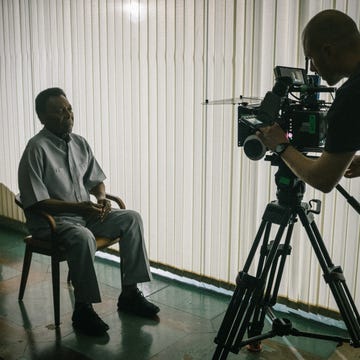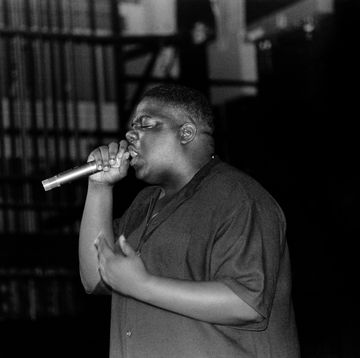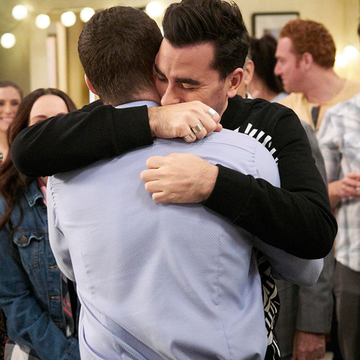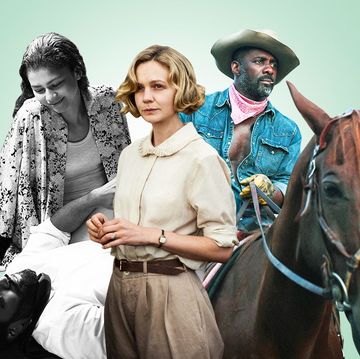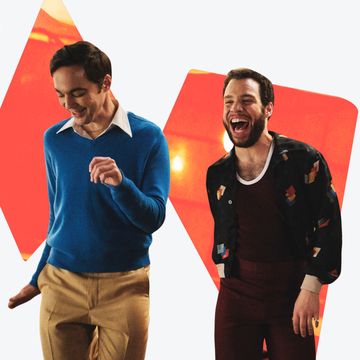Imagine that you are going on a long run. Now imagine turning up to exercise having just eaten a double cheeseburger and drunk two pints of coffee, without your trainers on. Sound stupid? This is often the level of preparation we sleepwalk into our evening routine with, waiting until our heads hit the pillow to run through all the things which might be keeping us awake, our eyes still wide from the glare of our phones.
"We take sleep for granted," says Eve Lewis Prieto, director of meditation at Headspace, which has paired up with Netflix for a new series recommending a more mindful approach to rest. "A third of adults have problems either going to sleep or waking up in the night, and I think a lot of that is driven by the stress and anxiety we experience in our day."
Prieto left a stressful job in advertising to work for Headspace years ago and has since helped to develop their meditation offering. In that time the perception of meditation has has shifted, with research pointing to its benefits for everything from mood to productivity to, yes, sleep.
"There is now growing research to show that practising meditation and mindfulness in the day not only helps us with stress during the day but when we go to bed at night," she says. "At night it can feel like our problems are magnified, and our body's response to stress is releasing cortisol and adrenaline. People’s stress and anxiety this year has just skyrocketed and it’s had a huge impact on our sleep."
Prieto is the soothing narrator of the seven-part series, with 15-minute episodes split between debunking sleep myths and ending with a wind-down exercise. It's part entertainment, part comfort blanket, like a choose-your-own-adventure that always ends up in the land of nod.
The series challenges sleep myths, like whether you can drink coffee in the afternoon (actually you can), if exercise in the evening keeps you awake (not necessarily), and how late you should be drinking alcohol (allow two hours of not drinking before bedtime, if you can). It also takes on the eight-hour sleep myth, explaining it's more about aiming for a range between seven and nine hours and not obsessing when you fall short. Similarly, Prieto has learned from researchers that the idea that you should keep a consistent bedtime is in fact less important than keeping to a consistent wake-up time.
One episode is dedicated to our phone usage, and while much is already known about how blue light-emitting devices battle against our sleep impulses, Prieto believes that it's more about how you use your phone, not whether you use it at all. Her wind-down routine features a playlist of soundscapes, like falling rain in a forest – much more soothing than tuning into the people shouting outside your window – and doing a breathing exercise which plays on her phone. "It’s not that using your phone is bad, it tends to be our relationship to it that is," she says. "So if you’re responding to emails just before bed and your phone is two inches from your face, our body will released dopamine making it hard to quit the device."
Sleep tech has boomed in recent years, with apps tracking our REM hours and lights mimicking the patterns of the sun as people hunt for a more peaceful snooze. Prieto used to use a sleep tracking app, but stopped because she was obsessing over analysing how many hours she got. The sleep industry works like the diet industry, promising a silver bullet to our restless nights, but Headspace's philosophy is that you can't hack your way to a better night's sleep. "When we don’t get enough sleep we feel frustrated and angry, and so it’s normal to want to have a quick fix," she says. "It’s like the promise of getting the perfect body in seven days, we are a culture of quick gratification."
Instead of instant results, taking up the practise of mindfulness is a way to gradually change our relationship with our emotions and to do some of the work of preparing for bedtime before we hit the pillow. "If we can bring more awareness to how we respond to things in the day using mindfulness, then hopefully when we get to go to bed we’ve been able to put a bit of space between us and our thoughts and feelings," Prieto says. "Often it isn’t the stressful event in our day but how we continue to fuel the storyline, which is why if we’re feeling a lot of anxiety and uncertainty that can really show up in our dreams."
The perfect night's sleep then is not a pill, app or eight hour stretch of time away, but a relationship you have with your emotions, which needs constant work. That might sound like tougher, but like the best things in life, it can at least be done for free.
Headspace Guide to Sleep is on Netflix from 28 April
Like this article? Sign up to our newsletter to get more articles like this delivered straight to your inbox
Need some positivity right now? Subscribe to Esquire now for a hit of style, fitness, culture and advice from the experts
